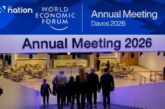
Dr. Arvind Kumar*

Is the Political Declaration at the UN SDG Summit 2023 actually a transformative action or just old wine in new bottle? A fundamental shift is needed in how the world tackles existing crises – from climate change to conflicts, from poverty to polarisation, from food security to financialisation of human rights, from shrinking civic space to social security gaps, from debt to the digital divide, from gender backlash to growth obsession. Was the summit able to address all these issues?
The SDGs need a global rescue plan” Said UN Secretary-General António Guterres at the just concluded SDG Summit at New York. He underlined that the SDGs represent not just a set of goals but also the hopes, dreams, rights, and expectations of people worldwide. Halfway to the target year of 2030 for achieving the Sustainable Development Goals (SDGs), global progress has fallen short, with only 12 per cent of the SDGs currently on track. While significant advancements were made in some areas, worldwide challenges posed a substantial setback. Recognizing the urgency of advancing the 2030 Agenda for Sustainable Development, world leaders convened at the SDG Summit 2023 in New York and collectively endorsed a Political Declaration, reaffirming their shared commitment to eradicate poverty and hunger, combat inequalities, and build inclusive and peaceful societies that leave no one behind. This commitment arrives at a critical juncture as global challenges, including the adverse impacts of climate change and the lingering effects of the COVID-19 pandemic jeopardize the attainment of the SDGs by 2030. More than 1,000 leaders across politics, business and civil society committed to accelerating momentum towards achieving these global goals, including responding to the climate and nature crises, improving access to nutrition, harnessing artificial intelligence for better jobs and advancing digital inclusion.
The Political Declaration is poised to be a transformative force in accelerating progress toward the SDGs. Representatives from Member States, UN entities, and civil society engaged in plenary sessions and leaders’ dialogues, assessing the progress made and the gaps in implementing the Goals while charting a forward path. With just seven years remaining until the 2030 deadline, the urgent need for scaling up SDG financing emerged as a central theme. The Declaration includes a resolute commitment to financing for developing countries, endorsing the proposal for an annual SDG Stimulus of at least $500 billion, as well as an effective debt-relief mechanism. It also calls for a shift in the business model of multilateral development banks, aiming to offer private finance at more affordable rates to developing countries, while advocating for reform of the international finance architecture, which has been described as outdated, dysfunctional, and unfair.
Transformative actions for SDG Acceleration
Notably, earlier this month, under India’s Presidency, the G20 New Delhi Leaders’ Declaration also highlighted the imperative of ‘Accelerating Progress on Sustainable Development Goals.’ Reaffirming their commitment to achieving the SDGs, the declaration emphasizes the acceleration of progress by collectively implementing the G20 2023 Action Plan to Accelerate Progress on the SDGs.

This comprehensive seven-year action plan focuses on three core agendas: leveraging data and digital technologies for development, implementing sustainable, inclusive, and just transitions globally while ensuring that no one is left behind, and investing in gender equality and women’s empowerment. The declaration further reaffirms the commitment of G20 nations to take actions that promote sustainable finance on a larger scale. Other focal areas in the effort to accelerate progress on the SDGs include eliminating hunger and malnutrition, addressing the macroeconomic impacts of food and energy insecurity, strengthening global health through a one-health approach, fostering collaboration between finance and health sectors, delivering quality education, and recognizing culture as a transformative driver in achieving the SDGs. In summary, the adoption of the Political Declaration at the SDG Summit 2023 marks a pivotal moment in the global commitment to fast-track the achievement of the Sustainable Development Goals. With mounting challenges and only seven years left on the clock, world leaders have affirmed their dedication to building a more equitable and sustainable future for all.
The Sustainable Development Goals are not a barrier to business; it is an enabler of business. There’s only so much that can be done as individual companies, so things have to be done in collaboration. Voices from across industries called for strong, pragmatic and innovative partnerships among governments, businesses and civil society to address the world’s challenges. We have to leverage partnerships in developing alternative solutions for a greener world. We need to work with the private sector and the government to make sure that people have alternatives.
How can we have sustainable development if people and communities are not enabled to develop and use their creativity?? If they are not those who decide on their development priorities based on their philosophies and aspirations? They must implement their practices, and lead their own development plans.
Way forward
There is a need to expand social protection to leave no one behind. The SDGs have to be localized especially in conflict-afflicted and fragile states. The transformative actions have to be pursued through science, technology, and innovation leveraging digitalization to speed up progress on the SDGs. We have to strengthen integrated policies and mainstreaming SDG implementation at the national level. Focus on renewing multilateralism as an imperative for effective implementation of the 2030 Agenda by mobilizing finance and investment, including through the SDG Stimulus, climate finance, debt relief, and a reform of the international finance architecture. The need to go beyond Gross Domestic Product (GDP), including through considering the multidimensional vulnerability index is an imperative. Although the progress on SDGs has been slower than expected however to accelerate the same we have to focus on building resilience to address the existential threat of climate change. Focusing on localisation remains essential for SDGs because out of 17 targets, 65% of them have to be implemented on the local level. Digital transformation is “really the wind beneath the sails of the global economy and digital transformation is not just about technological advancement. It’s also about leveraging these innovations to enhance social capital in a sustainable way and that actually improves the environment, then it just compounds and continues, and investment is all about compound growth.
Our hope is that more organizations, investors, and policymakers will prioritize the availability and use of high-quality data to inform their decisions. Mandating sustainability reporting that is aligned with sustainable development and fostering collaboration between the public and private sectors are concrete actions that can accelerate progress towards achieving the SDGs. The SDG Summit was able to provide the ideal platform to make this commitment and drive sustainable change forward however what needs to be seen is whether we can act on these commitments made to transform the world and secure a brighter future for all?
We have to hurry because the time for tweaks is over!
*Editor, Focus Global Reporter



